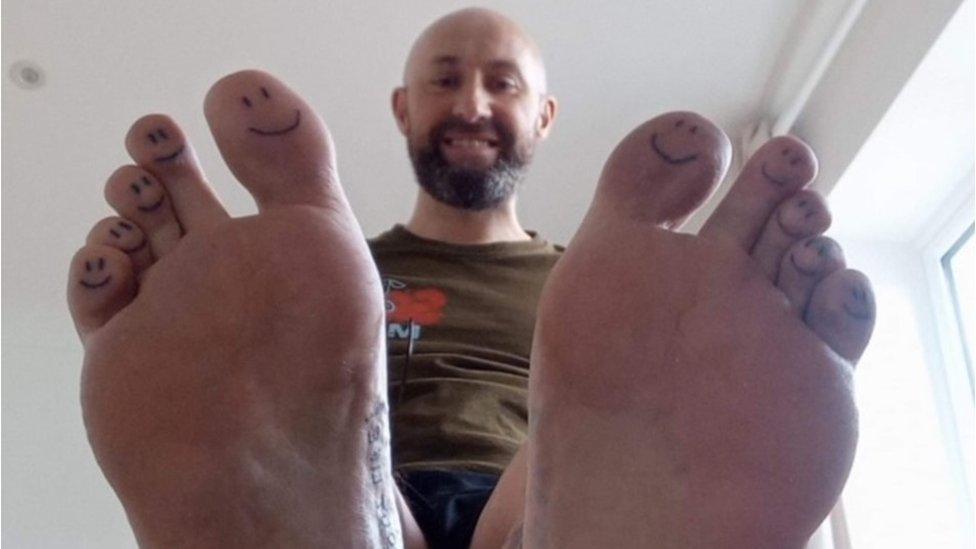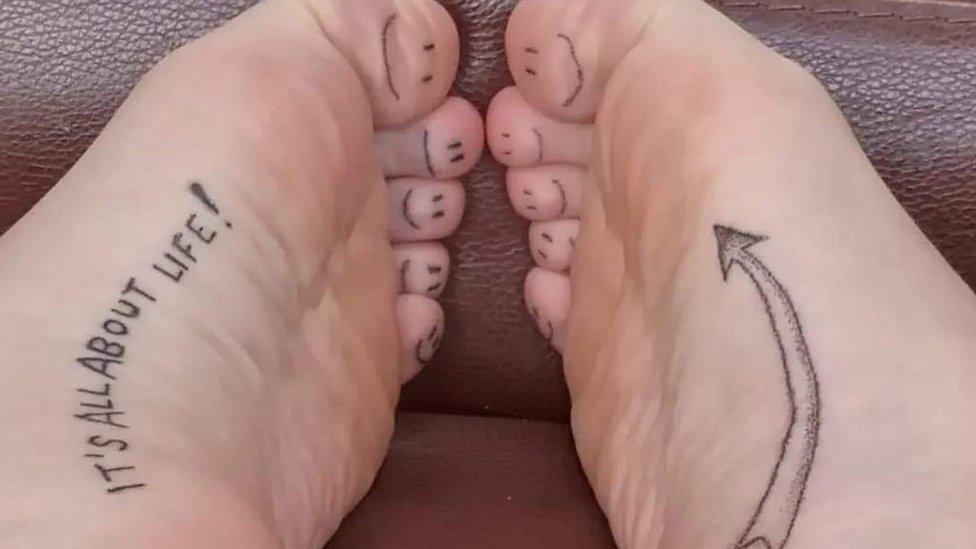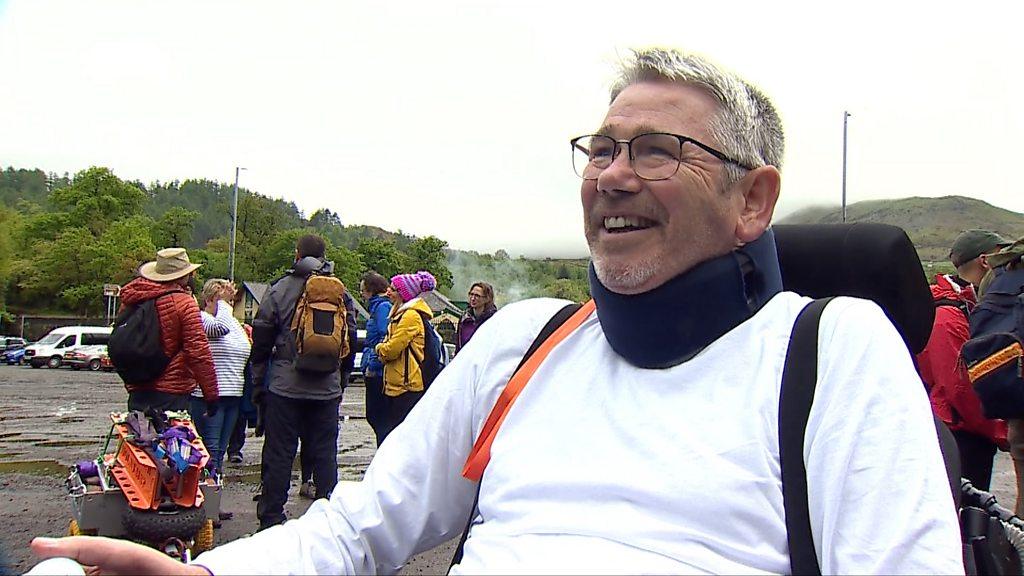Cauda Equina Syndrome: Pete Watts fights rare condition
- Published

Pete Watts has had smiley faces tattooed on his feet to help keep him positive
Pete Watts had always been fit and healthy, but everything changed when he lost the ability to walk in just a few weeks.
He had served as a Royal Engineer in Bosnia and when he left the Army, he took up mountain biking as a hobby.
But Pete, from Mold, Flintshire, bent to pick up his shoes in November last year and felt a twinge in his back.
By early January the pain was so bad, he could not walk - and he was diagnosed with Cauda Equina Syndrome, external.
It is a rare condition in which the nerves in the lower back suddenly become severely compressed and can lead to paralysis and incontinence if not operated on within hours of diagnosis.
"It was like something out of a movie," Pete said.
"My head started spinning. It was awful. It was this sinking feeling of what is life going to be like?
"People with Cauda Equina Syndrome are left in a wheelchair. People can't walk.
"They can't live their lives. So, it was utterly terrifying, absolutely terrifying."

Pete Watts was a keen cyclist before being diagnosed
He underwent emergency surgery to fix a ruptured disc at the base of his spine, not knowing if he would ever walk again.
The next morning, with the help of a nurse, he was able to stand. It gave him hope.
But when he returned home again, despite his back being fixed, he still had serious nerve damage in his legs.
"I wasn't able to work, I couldn't live my normal life," he said.
"It was just an awful, dark time."
Pete began looking for inspiration, and while scrolling on his phone one day, he came across a story about Martin Hibbert going up Snowdon in his wheelchair.

Words of inspiration are now on his foot
Martin, who was left paralysed from the waist down after the Manchester Arena attack, is also heading to Africa in a few weeks to climb Mount Kilimanjaro in Tanzania.
It gave Pete the boost he needed.
His injury means messages from his brain to his legs do not work as well as they used to, and he has to focus on every step. But seeing Martin's example spurred him on.
"To see a guy who is so positive and so motivated, it is just brilliant," he added.
"I can put one foot in front of the other, that is my thing, I can still do that, even if I can't get to the bottom of the street and back, at this time, I'll progress."

Pete has always been active and served in The Army
Pete said it made him realise that like Martin, he needs to focus on what he can do, rather than what he can't.
And as mark of his new-found positive attitude, he's had smiley faces tattooed on each of his toes, and a motto: "It's all about life!" along the side of his foot.
"It's just a funny thing. Instead of looking at my feet and feeling sad, they make me happy now.
"I've got happy toes... I've got a message to remind me it's all about life," he said.
Pete now manages to walk with the help of his walking stick.
He hopes he'll keep getting better, by keeping on putting one foot in front of the other.

LAST CHANCE TO SAVE: Will Millard explores some of Wales’s hidden historic buildings
CAREER CHANGE WITH A DIFFERENCE: Police new recruits adapt to life on the beat

Related topics
- Published15 April 2022

- Published4 May 2022
